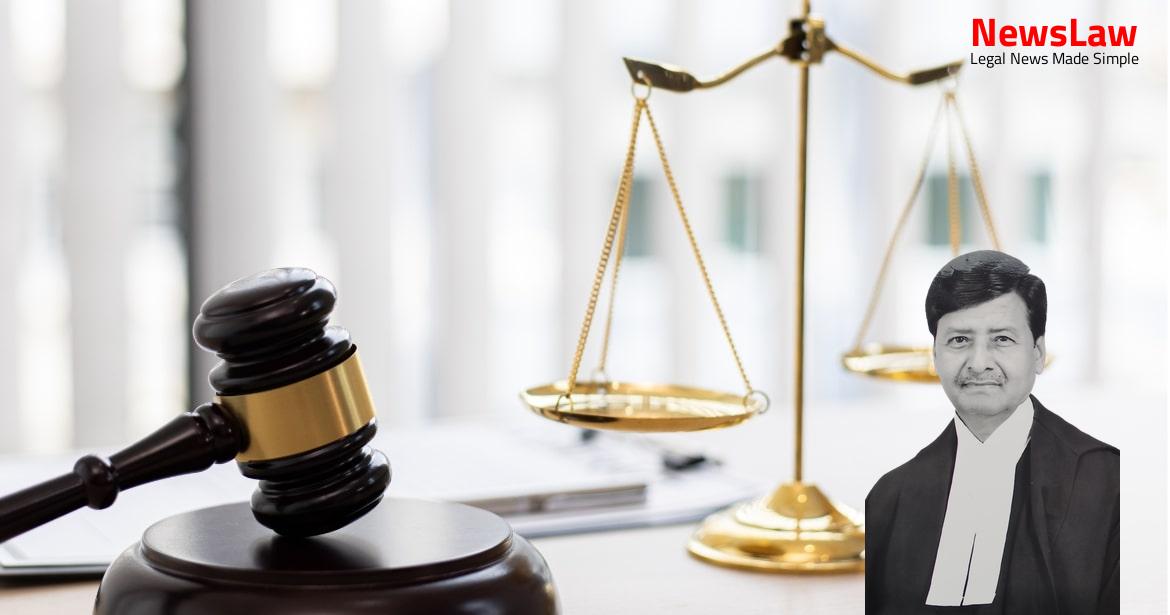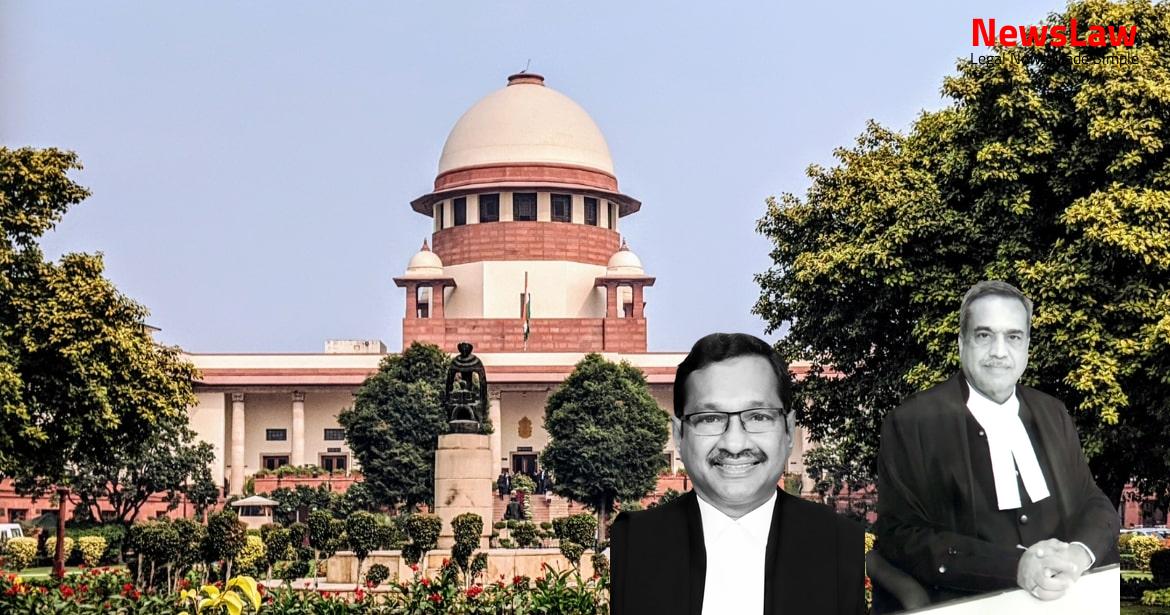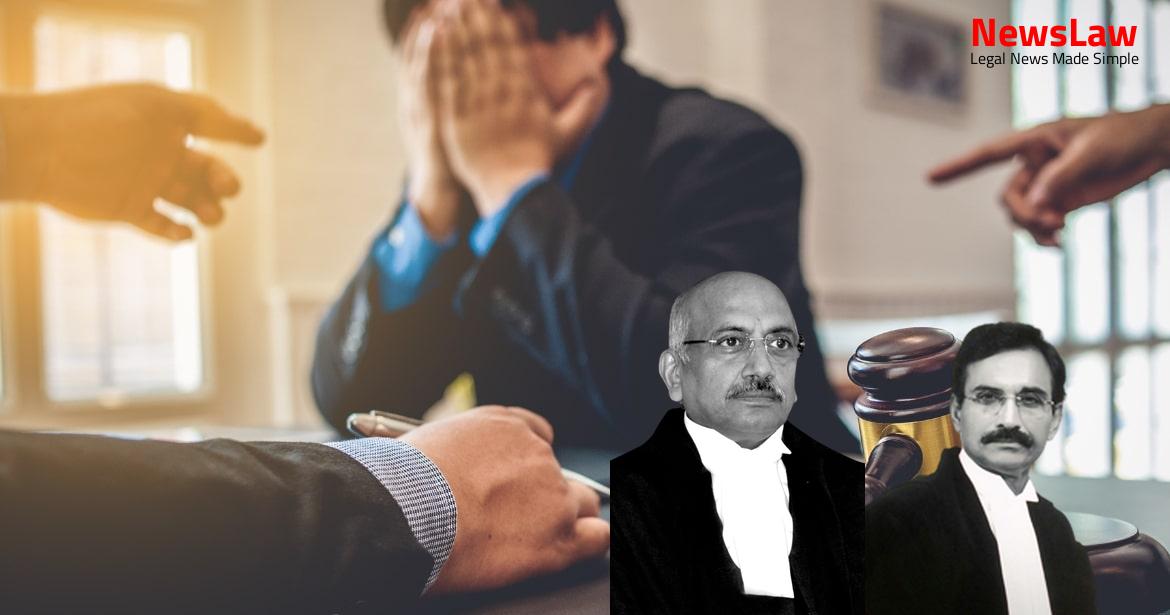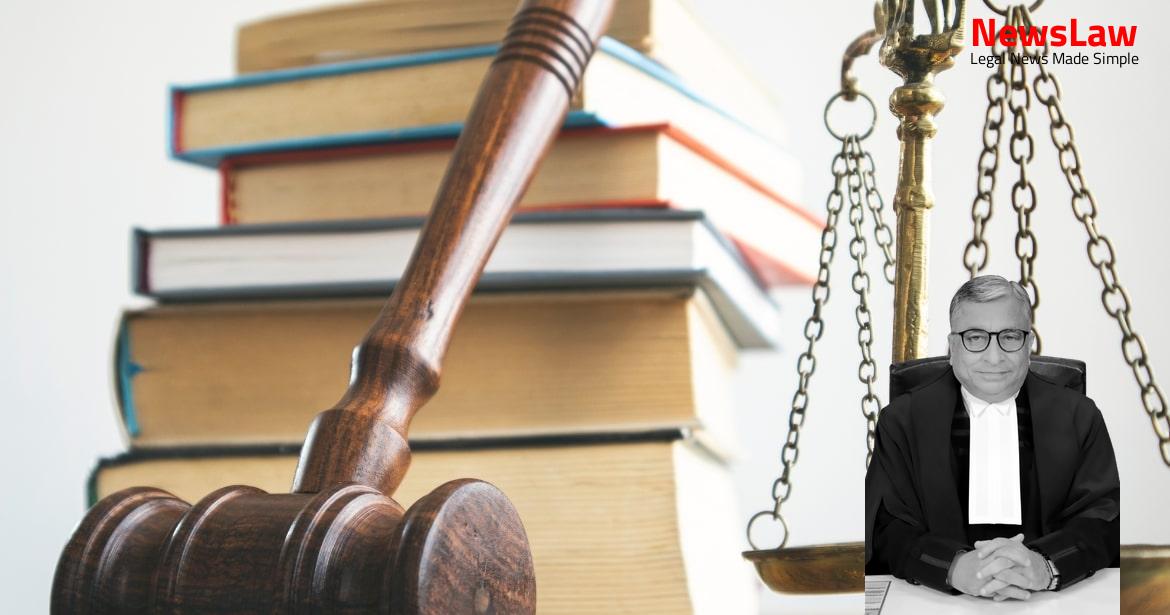Discover a fascinating legal analysis of a Hindu religious endowments case where the court navigates through the complexities of trust law. The case revolves around the interpretation of the Tamil Nadu Hindu Religious and Charitable Endowments Act of 1959, highlighting key aspects such as specific endowments and the nature of charitable trusts. Dive into the court’s insightful assessment of public and private charities, examining the intent behind charitable activities and the beneficiaries involved.
Facts
- The appellant contested the proposed sale of the suit property, claiming that the trust had no right to alienate the entire property dedicated to the idol Sri Renganathaswamy for charitable activities.
- The appellant alleged that the first respondent is a public religious trust created for specific charities, making the suit property a specific endowment as per the Tamil Nadu Hindu Religious and Charitable Endowments Act 1959.
- The management of the first respondent trust is solely handled by the lineal descendants of the founder, hindering the performance of charities due to encroachments.
- According to the appellant, only the Commissioner of Hindu Religious and Charitable Endowments has the authority to grant permission for the alienation of trust property, not the civil court.
- The dispute revolves around the proposed sale of 20,865 square feet of the suit property, with a portion excluded where a ‘Stone Mandapam’ dedicated to Sri Renganathaswamy is situated.
- Thoppulan Chettiar conducted various charitable activities at the suit property, including providing drinking water and millet porridge during religious festivals from the ‘Mahimai’ fund established from his granary business.
- The sale of the property aimed to utilize the interest generated from the sale proceeds for the continued execution of the charitable purposes.
- The High Court dismissed the appellant‘s second appeal.
- The judgment of the Principal District Judge, Tiruchirapalli from 31 August 2005 was upheld.
- The decree from 10 November 2004 of the Second Additional Subordinate Judge permitting the first respondent to sell a portion of the suit property to the fourth respondent was also upheld.
- Section 34 of the Act of 1959 was deemed inapplicable, and the proposed sale required sanction from a civil court.
- The Deed of Settlement was found not to create a charge or encumbrance in favor of the appellant.
- The trial judge confirmed that the Deed of Settlement did not vest the suit property in the appellant.
- The First respondent trust was determined to be a private trust rather than a public trust, exempting it from the Act of 1959.
Also Read: Legal Analysis on Arbitration Petition Limitation Period
Arguments
- The appellant argued that the property purchased by Thoppulan Chettiar for charitable work with reference to Sri Renganathaswamy sanctum had lost its secular character and was reserved and allotted for charity.
- The appellant claimed that a religious charitable endowment had been established for the appellant temple through festivals and charitable activities mentioned in the Deed of Settlement.
- The appellant pointed out that the income from the property was to be used for charity and excess income kept as a reserve family fund.
- The trustees were said to be prohibited from selling the property dedicated for charity.
- The appellant contended that Section 34 of the Act of 1959, which requires government approval for sale of endowed property, renders the respondent’s suit invalid.
- The appellant argued that the Act of 1959 does not apply to the first respondent trust, as there is no notification extending its provisions to the trust, and that the trust is secular and open to the public without religious restrictions.
- The appellant emphasized that the Deed of Settlement did not create a specific endowment in favor of the appellant deity.
Also Read: Analysis of High Courts’ Jurisdiction and Court Orders Under Article 142
Analysis
- Section 1 of the Indian Trusts Act 1882 does not apply to the first respondent trust as it exempts public and private charitable endowments.
- The restraint created in the Deed of Settlement is considered void under Section 10 of the Transfer of Property Act 1882.
- The Deed of Settlement obligates the legal heirs to continue charitable activities at the suit property.
- The Deed of Settlement creates an obligation on the legal heirs to fund charitable activities out of their business incomes.
- The suit property should be allowed to be sold to fulfill the intention of the settlor to carry out the charity.
- The Deed of Settlement does not mention income from the suit property, but requires funding from the legal heirs’ business incomes.
- The first respondent’s suit is not maintainable as per Section 34 of the Act of 1959, as the Commissioner is the appropriate authority for land sales.
- No endowment of money is in question, only whether the suit property itself was endowed.
- The endowment created is for the continuation of charitable activities at the suit property.
- The term ‘devotees’ in the Deed of Settlement indicates a connection between the charity and Hindu religious festivals.
- The endowment is for a ‘religious charity’ under the Act of 1959.
- The endowment is not in favor of a specific temple but for religious charity associated with Hindu festivals.
- The charitable activities financed by the settlor were associated with Hindu religious festivals and were to be continued by the legal heirs.
- The specific endowment was an absolute endowment for a religious charity as per the Act of 1959.
- The Deed of Settlement did not create a specific endowment in favor of the appellant idol but to a religious charity.
- The court had to determine whether an inscription on a rock found in the ‘Bakers Choultry’ constituted a ‘specific endowment’ under the Act of 1959.
- The distinction between public and private charities was discussed, emphasizing the settlor’s intent and the nature of beneficiaries.
- Cases such as Menakuru Dasaratharami Reddi v Duddukuru Subba Rao and Mahant Ram Saroop Dasji v S P Sahi were cited to illustrate the difference between public and private charitable trusts.
- The Deed of Settlement in question aimed at charity work linked to Sri Renganathanswamy sanctum, suggesting a public character due to its benefit to ‘devotees’ visiting during specific Hindu festivals.
- Judicial decisions in K S Soundararajan v Commr of Hindu Religious & Charitable Endowments and M J Thulasiraman v Hindu Religious & Charitable Endowment Admn were referred to regarding religious charities associated with Hindu festivals.
- The court determined that when a charity has a public character and is associated with a Hindu festival, it falls under the definition of ‘specific endowment’ under Section 6(19) of the Act of 1959.
- The concept of being ‘associated with’ a Hindu festival in defining the relationship between the charity and the festival was explored, citing Commr, Madras Hindu Religious and Charitable Endowments v Narayana Ayyangar.
- It was emphasized that where beneficiaries are an uncertain and fluctuating group, the trust or charity is of a public character, as seen in the case at hand regarding the charity for ‘devotees’ visiting during specific Hindu festivals.
- The overall intention of the settlor as reflected in the Deed of Settlement must be considered to ascertain the nature of the trust or charity.
- For a charity to be deemed a ‘religious charity’ under Section 6(16), it must be associated with a Hindu festival or observance of a religious nature and benefit an uncertain or amorphous group of individuals.
- The Act of 1959 applies as long as there exists a ‘specific endowment’ as defined in Section 6(19)
- In this case, there are no allegations or reasons to believe that the trust is being mismanaged
- The first respondent cannot rely on Section 3 to exclude itself from the Act of 1959
- The specific endowment created is an absolute endowment for a religious charity as per the Act of 1959
- Hence, the provisions of the Act of 1959 are applicable to the first respondent
Also Read: Electoral Malpractices in Mayor Election
Decision
- The appeal is allowed and the order of the Single Judge of the Madurai Bench of the High Court of Judicature at Madras is set aside.
- No costs are awarded.
- The first respondent can follow the procedure under the Act of 1959.
- As a result, the suit filed by the first respondent is dismissed.
Case Title: IDOL OF SRI RENGANATHASWAMY REP BY ITS EXECUTIVE OFFICER/JOINT COMMISSIONER Vs. P K THOPPULAN CHETTIAR, RAMANUJA KOODAM ANNADHANA TRUST REP BY ITS MANAGING TRUSTEE (2020 INSC 213)
Case Number: C.A. No.-009492-009492 / 2019



